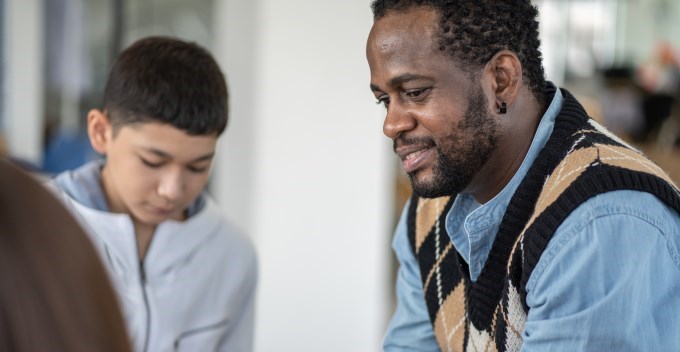You've Got This: Information on teen substance use for parents and caregivers
You’ve got this – Information on teen substance use for parents and caregivers
Download a printable handout of this information.
Jump to the information you need:
- What are signs that my child may have problematic substance use?
- What should I do?
- How can I talk to my child about their substance use?
- How can I keep my child safer?
- Naloxone: It's legal, free and can save lives.
- You're not alone... we can help you and your teenager
Whatever you are feeling right now is normal.
Some people feel overwhelmed, embarrassed, tired, angry and scared...whatever it is, acknowledge it and know that you are not alone. Feelings are normal, but there is hope. What matters is showing up with love, honesty and a willingness to listen.What are signs that my child may have problematic substance use?
Trust your instincts. As a parent or caregiver, you know your child best. The signs can be different for each person, but you've probably noticed a change in behaviour.
Here are some common signs to watch out for:
- Missing class or declining grades
- Changes to their friends or relationships
- Changes to their weight or hygiene
- Changes to their eating and sleeping habits
- Losing interest in hobbies or activities
- Becoming more secretive or withdrawn
- Finding drug paraphernalia
- Using daily
- Using before or during work / school
- Using as main way to have fun, relax, or deal with negative moods
- Using at times of high emotions like anger, sadness or aggression
Learn more about common signs to watch out for and patterns in their substance use that can be problematic:
-
Kelty Mental Health: Signs that a youth may be using substances
-
Alberta Health Services: How do I know if my teen us using drugs?
What should I do?
-
Understand why people may use substances. Substance use is complicated, so it is important to consider things that may influence your child's substance use choices.
-
Consider the substance use spectrum, which ranges from no use to having problems occur. Understanding this can help you respond with care and clarity.
-
Support your child by taking different approaches depending on if and how much your child is using substances. Listen and explore why they are using substances.
How can I talk to my child about their substance use?
Check in with yourself
- Check in with your feelings, biases, and experiences
- Be mindful of timing and choose a moment when you and your child feel calm and safe
- Avoid entering the conversation with a fixed agenda
Check in with your child
-
Start gently by kindly saying what you’ve noticed and showing that you care
-
Listen without judging, ask open-ended questions, and try to understand what’s going on for them
- Let your child know that you're always there for them. Even if they push you away, you can still be a steady, safe place to turn to
How can I keep my child safer?
There are things you and your child can do to stay safer when using substances. These things can help open lines of communication, build trust, and support your child’s wellbeing.
-
Encourage them:
- Not to use alone
- Not to mix substances
- To limit or reduce use
- To test substances when possible
- To use in a safer environment around people they trust
- Talk about the dangers of driving and substance use (or accepting a ride from someone who has used substances)
-
Make sure you and your child have a Naloxone kit (and how to use it)
-
Check out a few things your child can do to stay safer when using substances:
Find more tips for talking about substance use here.
Naoloxone: It's legal, free and can save lives.
Naloxone is a medication that can temporarily reverse an opioid overdose and save lives. It is given as a nasal spray or injected. Naloxone kits are free, legal, and safe for all ages. You can pick one up for free at most pharmacies and you do not need a prescription. Check here to find out where.
You're not alone... we can help you and your teenager.
There are many different supports and treatment options to help you and your family through this journey like addiction counselling, assessments for diagnosis, treatment for both substance use and mental health disorders, medication to help with cravings or withdrawal from substances, live-in treatment, and family support.
-
For help finding and connecting with hospital or community services, call 1Call1Click.ca at 613-260-2360 (or 1-877-377-7775 for toll free) or book an online appointment.
- For immediate help in a crisis, call the Youth Services Bureau's 24/7 crisis line at 613-260-2360 (or 1-877-377-7775 for toll free) or click here to chat online with a counsellor. It's free and confidential.
-
For support for yourself, even if your child does not want professional help:
-
Parents Lifeline of Eastern Ontario (Pleo): Offers free drop-ins (including a group that helps caregivers build skills to support their youth who is using substances) in-person or virtual one on one appointments, and a helpline (613-321-3211 / 1-855-775-7005)
-
Rideauwood Addictions and Family Services: Offers free caregiver counselling and programs in English. Call them at 613-724-4881 or visit them online
-
Centre Le Cap: Offers free caregiver counselling, groups, and workshops in French. Call them at 613-789-2240 or visit them online
-
















